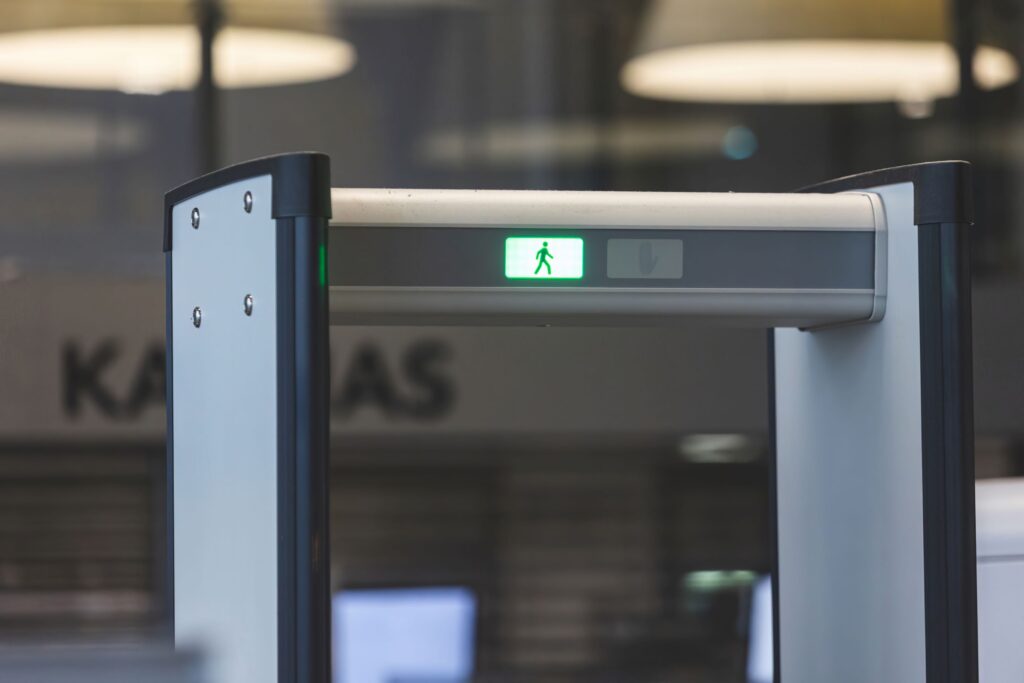
If you fly frequently for work or pleasure, you’re likely already quite familiar with security protocol at the airport. You know what size items are allowed in your carry-on baggage, and you’re familiar with the ins and outs of passing through security.
But if you’ve lost teeth and are considering replacing them with dental implants, you might worry that you’ll have challenges with metal detectors in the future. Continue reading to learn more about why you can safely set your fears aside and proceed with your desired treatment!
What Are Dental Implants Made From?
These are the only replacement teeth that include a support rod that’s embedded in your jaw and eventually fuses with the bone for added resilience and stability. These poles are usually made from biocompatible titanium, which is known for its high strength-to-weight ratio. Not only does your body not reject this material, but it’s durable enough to withstand the pressure of daily biting and chewing without feeling overly heavy in your mouth.
When your gums have recovered sufficiently after your procedure, your dentist provides a customized restoration usually made from ceramic that anchors to your implants for beautiful, long-lasting results. This might be a dental crown, bridge, or dentures, depending on how many teeth went missing.
How Do Airport Metal Detectors Work?
Airport metal detectors typically work by creating an electromagnetic field through the emission of pulses. Metallic objects disrupt the waves by creating their own magnetic field, which triggers the alarm.
As a result, some patients who have undergone hip or knee joint surgery or have metal plates, screws, or rods for various orthopedic implants may trigger the sensor and require an additional scan with TSA agents.
Will My Dental Implants Trigger Airport Security?
It’s natural to worry that your dental implants might have a similar effect at the airport, but usually, they don’t trigger the metal detectors. While the reason for this is somewhat unclear, it’s believed that a few factors might play a part.
For example, dental implants are quite small, and the amount of titanium used might not be enough to create their own electromagnetic signature, allowing them to pass through the machine unnoticed. Furthermore, they’re embedded in your jawbone, which might be dense enough to keep the detector from sensing your dental work.
Fortunately, that means your new teeth are unlikely to interrupt your travel plans. However, if for whatever reason they do trigger a TSA response, you can explain to the agent that you have implants. That way, airport security can perform their screening and then send you on your way to your gate!
About the Practice
Patients at North Garland Family Dental benefit from two dedicated dentists who share decades of combined experience. Dr. Vazquez and Dr. Peterson are both highly accomplished providers who collaborate to offer a comprehensive menu of services, meeting all your needs under one roof. They have advanced training and state-of-the-art equipment to perform each step of the implant process, including oral surgery, in the office for a more comfortable and streamlined experience. You can request an appointment on the website or call (972) 385-4366.






